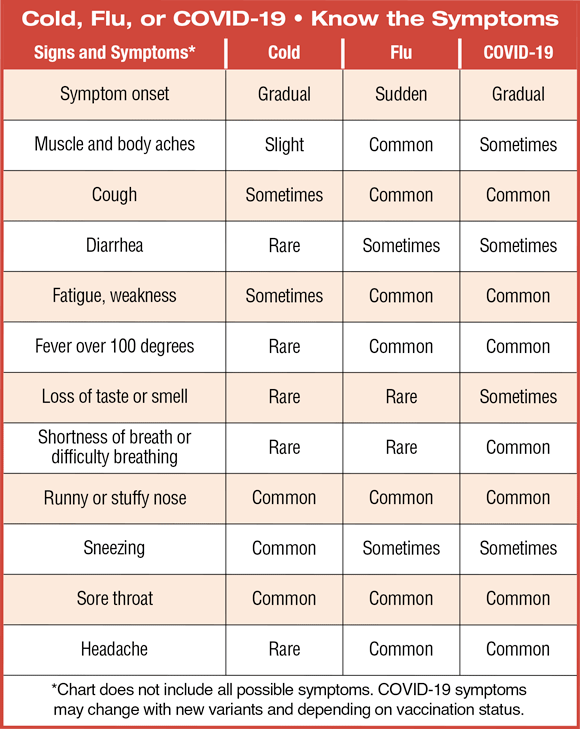![]()
Welcoming the Holiday Season Amidst a Tri-Demic
Errol Buntuyan, M.D., FAAFP
Hard to believe it is the Holiday Season once again and soon the end of 2022. The year has gone by so fast. The normalcy of life truly has come back as this is the first Holiday season since 2020 when we have no more masking mandates in Hawai‘i. Travel testing, vaccination card requirements, social distancing recommendations and group gathering protocols all seem so long ago.
The Holiday Season also brings us the cold season. It has been two years since we had the familiar sneezes and sore throats because our safety measures shielded us from the various viruses which hit us each winter.
Nationwide, the flu season hit us hard and early, and yet another winter surge in COVID-19 cases is expected. Respiratory Syncytial Virus (RSV) also hit us hard and early affecting children under two but also causing severe illnesses in the elderly over 65 years old and the immunocompromised. Moderate wheezing, cough, fever and decreased appetite distinguish RSV from a common cold. Natural immunity is helpful after an infection of RSV but it is short lived and RSV infections can occur more than once in a season. This winter season is being called a “tri-demic” because there is a fast rise in patients battling the flu, RSV and/or COVID-19. All three viruses can lead to respiratory distress and hospitalization, especially in children under two or those elderly, unvaccinated, with asthma or other health issues. We’ve already seen a large number of ER visits and hospitalizations this last month.
How can you tell the difference between a common cold, flu and COVID? The chart shown (courtesy of Kaiser Permanente) lays out the most common symptoms of a cold, the flu, and COVID-19.
These are just three of the many types of viruses and their variants we see each year. We only have tests for COVID, influenza and RSV. The most important thing is to know what to do if you feel sick with one of these viruses.

What to do if you feel sick
If you start to feel symptoms of a respiratory infection, taking a COVID Home Antigen Test is the quickest and easiest way to rule out a coronavirus infection and make sure you’re not putting others at risk. If your test result is positive, stay home, isolate and contact your health care provider’s office if you need guidance or support. If your result is negative, retest 24 to 48 hours after your first test. Currently Paxlovid is the best oral treatment for those infected with COVID and who meet eligibility criteria. Molnupiravir oral treatment and remdesivir intravenous infusions are two other COVID treatments but neither are as effective or readily available. Because of the latest Omicron subvariant, monoclonal antibody treatments are no longer working and thus no longer utilized.
Most patients do not need to be tested for flu or RSV unless there is a potential need for them to be hospitalized. But stay home if you feel sick to avoid spreading your illness to others. Only come back to work or social events when you have minimal or no symptoms. The treatments are mostly supportive and medications are given to treat symptoms. If you get the flu, a prescription medication called Tamiflu may shorten the duration of infection and reduce symptoms. Currently there is no similar antiviral treatment regimen for RSV.
For most healthy people, diseases such as the flu, COVID-19 and RSV will go away on their own. Call your medical provider’s advice line or use virtual care options (emails or video visits) to avoid overcrowding in clinics and to limit your exposure. If you need to see a provider, seek medical care at your healthcare provider’s office, urgent care centers or an ER if symptoms are severe.
If your child is having severe breathing problems or you see their skin or fingernails have a bluish color due to a lack of oxygen, do not hesitate to go to an emergency department or call 911.
We must take care of ourselves and use common sense during this winter season. Often times we push ourselves with our attendance at social gatherings, busy Holiday shopping and festive preparations. We forget to take care of our own needs. Stay home and recover if you are feeling sick. As always, remember to wash your hands (or use sanitizers), use masks (which can be hard to do) and stay distanced because these three principles keep us safe from getting sick. Pay attention to your body’s signals, eat healthily and get your rest.
Finally, I want to thank all the readers of Iti Salunat Yo! for allowing me to write about the health issues facing our Maui Filipino community. I will be transitioning to a new chapter in life and moving to California to be closer to family. The new president of Filipino Association of Maui Doctors (FAMD) is Arleen Ricalde, MD and she will continue to contribute health related articles to The Fil-Am Voice. It has been a pleasure to have lived on Maui for the last fifteen years and I am grateful to have served as a physician in such a wonderful and strong Filipino community.
 Errol Buntuyan, M.D. is a Family Medicine Practitioner and the Physician in Charge of Maui Primary Care at Kaiser Permanente. Born in Quezon City and raised in Southern California, he has been practicing medicine on Maui since 2007. Dr. Buntuyan promotes whole food, plant based nutrition, regular physical activity, stress mindfulness and sleep hygiene as keys to optimum health and wellness. He enjoys cooking, playing tennis and travel.
Errol Buntuyan, M.D. is a Family Medicine Practitioner and the Physician in Charge of Maui Primary Care at Kaiser Permanente. Born in Quezon City and raised in Southern California, he has been practicing medicine on Maui since 2007. Dr. Buntuyan promotes whole food, plant based nutrition, regular physical activity, stress mindfulness and sleep hygiene as keys to optimum health and wellness. He enjoys cooking, playing tennis and travel.
The Fil-Am Voice thanks Dr. Buntuyan for his service to the people of Maui and The Fil-Am Voice and wishes him the very best as he transitions to California to be closer to his family. Aloha and Mabuhay!
